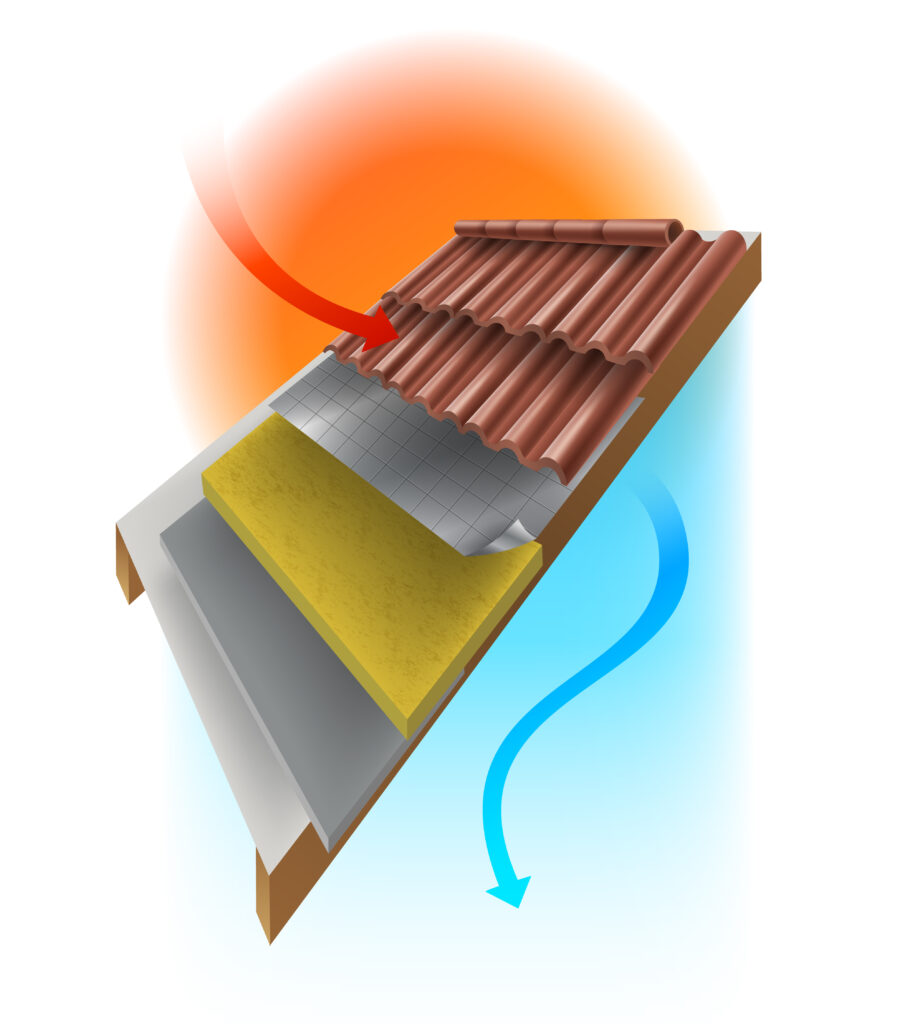The WIScool series of heat insulation products by WIS-LAB presents a cutting-edge solution for thermal management in buildings, particularly suited for regions with high heat exposure, such as Hong Kong. These radiative cooling coatings passively radiate heat and remain cooler than the surrounding air temperature. The radiative cooling technology behind WIScool harnesses the natural process of emitting thermal infrared radiation. This allows surfaces to shed excess heat into the atmosphere, particularly during the day, while reflecting solar energy. By reducing absorbed solar heat, WIScool products help maintain lower surface and indoor temperatures, decreasing the need for air conditioning. By emitting heat more effectively than it absorbs solar radiation, the product can maintain temperatures below the ambient air. This not only improves indoor comfort but also enhances the energy efficiency of the entire building.
One of the standout features of WIScool heat insulation coatings is their hydrophobic nature. These coatings prevent water, dust, and mold from accumulating on surfaces, ensuring that the insulation remains effective for extended periods, even in harsh environmental conditions. The incorporation of radiative cooling in WIScool aligns with global sustainability goals. By significantly reducing the cooling load on buildings, these coatings contribute to lowering carbon emissions, making them an eco-friendly choice. They are versatile and can be applied to a wide range of surfaces, including glass, metal, and stone. Another crucial feature of WIScool products is their ability to resist UV degradation and corrosion, making them ideal for long-term application in environments exposed to intense sunlight and moisture. This feature is especially relevant for buildings located in coastal or industrial regions. Beyond temperature control, WIScool products contribute to better indoor air quality. By maintaining lower indoor temperatures, the need for mechanical cooling systems is reduced, which decreases the recirculation of indoor pollutants. In addition, the coatings themselves are non-toxic and do not emit volatile organic compounds (VOCs), supporting a healthier indoor environment.
Traditional materials such as fiberglass or foam-based insulations work by reducing thermal conductivity. However, they do not actively cool surfaces or radiate heat back into the atmosphere, limiting their effectiveness in extremely hot climates. In contrast, WIScool combines both radiative cooling and thermal insulation to create a dual-effect. It not only insulates but also lowers surface temperatures, a feature conventional materials cannot match. This results in greater overall energy savings and enhanced durability in high-heat environments. The WIScool series is ideal for urban environments, particularly in tropical or subtropical climates where solar heat is a constant concern. The product’s potential extends beyond residential and commercial buildings to industrial and infrastructure projects that require robust, long-lasting thermal solutions. Furthermore, the technology behind WIScool could be pivotal in the green building movement, aiding in meeting stringent energy efficiency and sustainability standards.
In conclusion, the WIScool heat insulation products stand at the forefront of thermal management technology, offering a sustainable, high-performance solution. The ability to reduce surface temperatures below ambient levels, coupled with the product’s hydrophobic, UV-resistant, and mold-repellent properties, positions WIScool as a market leader in the field of advanced building insulation.

